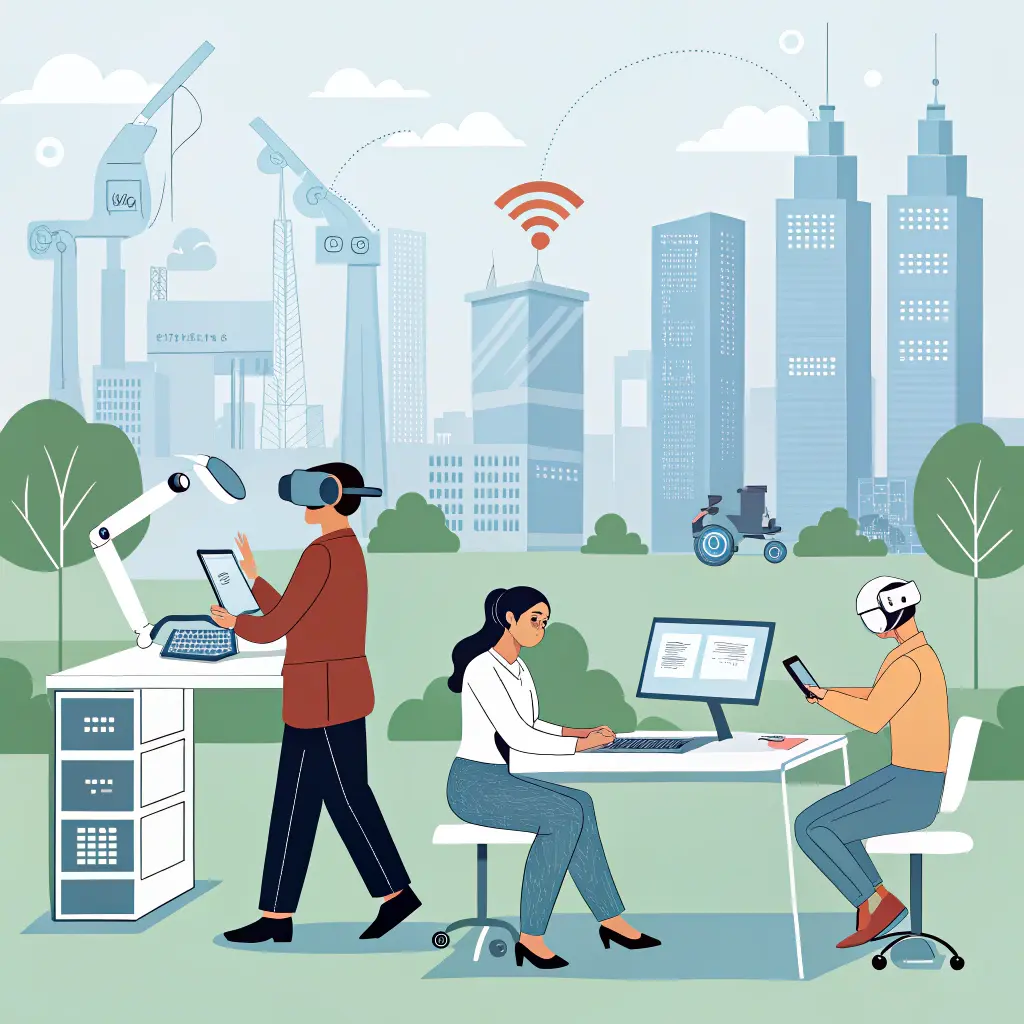
As we look ahead to 2030, the workplace is set to undergo significant transformations, driven by technological advancements, shifting societal expectations, and evolving business needs. The future of work will be defined by flexibility, automation, and a renewed focus on employee well-being. CorporateOne, as a forward-thinking company, is already positioning itself to embrace these changes and lead the way in shaping the workplace of tomorrow.
By 2030, remote and hybrid work will likely be the standard for most industries. The pandemic accelerated the shift to remote work, and now businesses are realizing that flexibility leads to increased productivity, higher employee satisfaction, and better work-life balance.
In the future, companies will adopt even more advanced collaboration tools powered by AI and virtual reality, making remote work seamless and highly interactive. Employees will be able to work from anywhere in the world, with no need for traditional office spaces. While remote work will thrive, hybrid models will still be common as businesses seek to blend the benefits of in-person collaboration with the flexibility of remote work.
Automation is expected to revolutionize how we work by 2030. AI-powered systems will handle repetitive tasks, allowing employees to focus on more strategic and creative work. From customer service chatbots to advanced data analysis tools, AI will free up human workers to take on more meaningful and impactful tasks.
However, this shift will require businesses to invest heavily in upskilling and reskilling their workforce. Roles in data science, cybersecurity, and AI ethics will be in high demand. Corporations like CorporateOne are already developing training programs to ensure that their employees are well-equipped for this new wave of technological innovation.
By 2030, the workplace will be deeply personalized. Companies will use AI to tailor the employee experience to individual preferences, providing personalized learning, career development, and even wellness programs. This means employees will have access to tools and resources that match their specific learning styles and career goals.
Employee well-being will also be a central focus. Companies will invest more in mental health support, flexible work hours, and wellness initiatives to ensure their teams are not only productive but also happy and healthy. A personalized approach to work will help retain top talent and foster long-term employee loyalty.
In 2030, diversity, equity, and inclusion will be at the heart of every corporate strategy. Companies that prioritize DEI will see better employee engagement, innovation, and performance. CorporateOne is already committed to fostering a diverse and inclusive workforce, but in the future, businesses will leverage technology to ensure fairness and inclusivity in hiring, promotions, and decision-making.
Advanced data analytics will help eliminate bias in recruitment processes, ensuring that every candidate has an equal opportunity to succeed. DEI will no longer be a separate initiative but a part of the company’s overall mission and culture.
By 2030, more professionals will choose flexible, project-based work instead of traditional full-time employment. The gig economy will continue to grow, with highly skilled freelancers offering their services across industries.
While this will create opportunities for greater work-life balance and autonomy, it will also require companies to adapt to new forms of collaboration and talent management. CorporateOne is already exploring ways to work with freelancers and independent contractors while maintaining strong relationships and ensuring seamless integration with core teams.
Environmental concerns and social responsibility will play an even larger role in how businesses operate by 2030. Companies will be expected to integrate sustainable practices into their operations, reduce their carbon footprint, and contribute to societal well-being. CorporateOne is already on its sustainability journey, but in 2030, sustainability will be a core component of every business decision.
This includes everything from using renewable energy in offices to ensuring ethical supply chains and promoting sustainability in product development. Companies that fail to prioritize environmental and social responsibility will risk losing their competitive edge as consumers and employees alike demand more from corporations.
Despite the increasing reliance on AI and automation, human connection will remain essential. In 2030, businesses will balance cutting-edge technology with the importance of human interaction, creativity, and empathy.
Employees will still crave meaningful relationships, mentorship, and collaborative team environments. As technology becomes more sophisticated, the need for emotional intelligence, leadership, and human-centered innovation will only grow.
The future of work in 2030 presents exciting possibilities. As we move toward a more flexible, tech-driven, and inclusive workplace, companies like CorporateOne will continue to innovate and adapt to meet the needs of tomorrow’s workforce. By embracing these changes, we are not just preparing for the future—we’re actively shaping it.
We are committed to fostering a culture of innovation, continuous learning, and sustainability, ensuring that CorporateOne remains at the forefront of the workplace evolution. Together, we can create a brighter, more inclusive, and more fulfilling future for all.
